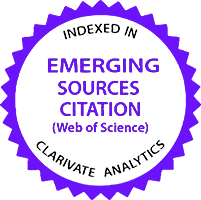The field of education in the Ottoman era is one of the most contentious historical fields, as it is directly related to the development of the Arab society in the Ottoman era. The Ottoman Empire was accused of not paying attention to the educational aspect and of not making the necessary effort to deploy educational institutions in the Arab states, thus bearing responsibility for the ignorance spread between them during the Ottoman era. At the beginning of the reforms, the Ottoman Empire worked to develop the educational process, paying great attention to education and undertaking a large educational movement in its states and subordinate countries in order to keep pace with the educational modernity that has spread in European countries. Since the subject of education raises a lot of questions, especially for those who seek to demonstrate the realities of underdevelopment or lack thereof to the Ottoman Empire. This study highlights the reality of education in the state of Beirut. education, focusing on the role of missionary schools in education, especially since this type of school was a reason for the Ottoman Empire to pay attention to education and to open Islamic and Ottoman schools to preserve Muslim youth from the proselytizing exercised by these schools, especially in the Levant, which included a large number of Muslims and Christians. We also touched on Islamic, Christian and Jewish education, and also on Ottoman government education. This allows for the formation of a brilliant image of the Ottoman Empire that reflects the tolerance the state has adopted in its relationship with Jews and Christians, as well as the quality of government education, which negates the idea of a backward state that spreads ignorance
Keywords: Biosensor; Surface plasmon resonance; Graphene; MoS2; Bacteria; Sensitivity; Lumerical environment.
DOI: http://doi.org/10.5455/jjee.204-1658669063

![Scopus®_151_PNG-300x86[1]](https://jjee.ttu.edu.jo/wp-content/uploads/2024/03/Scopus®_151_PNG-300x861-1.png)
